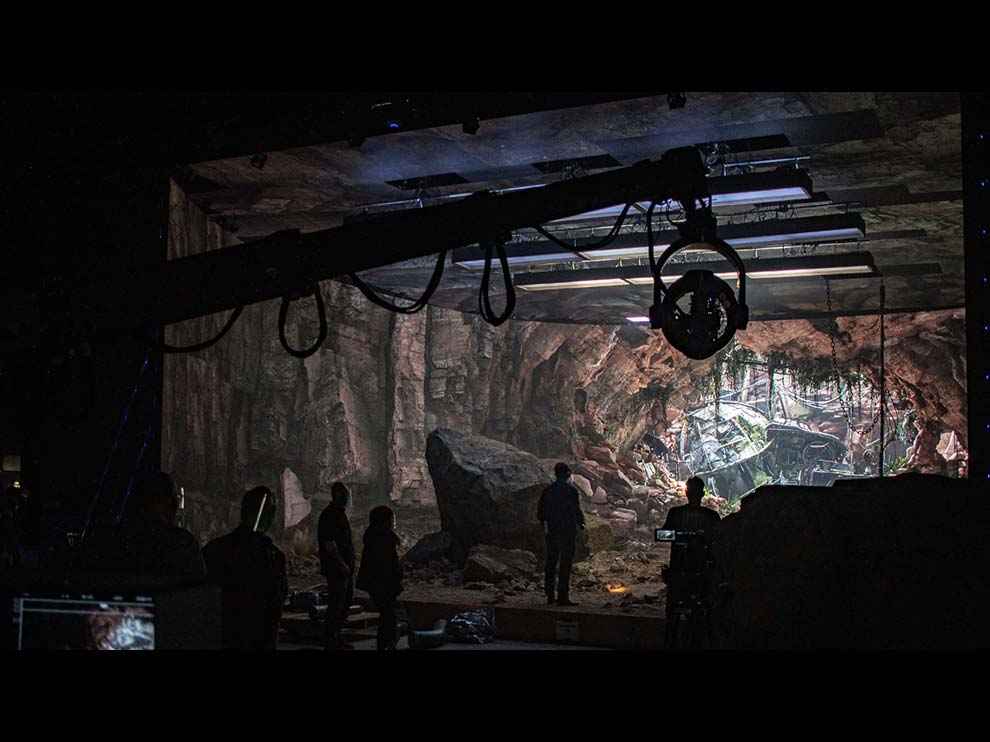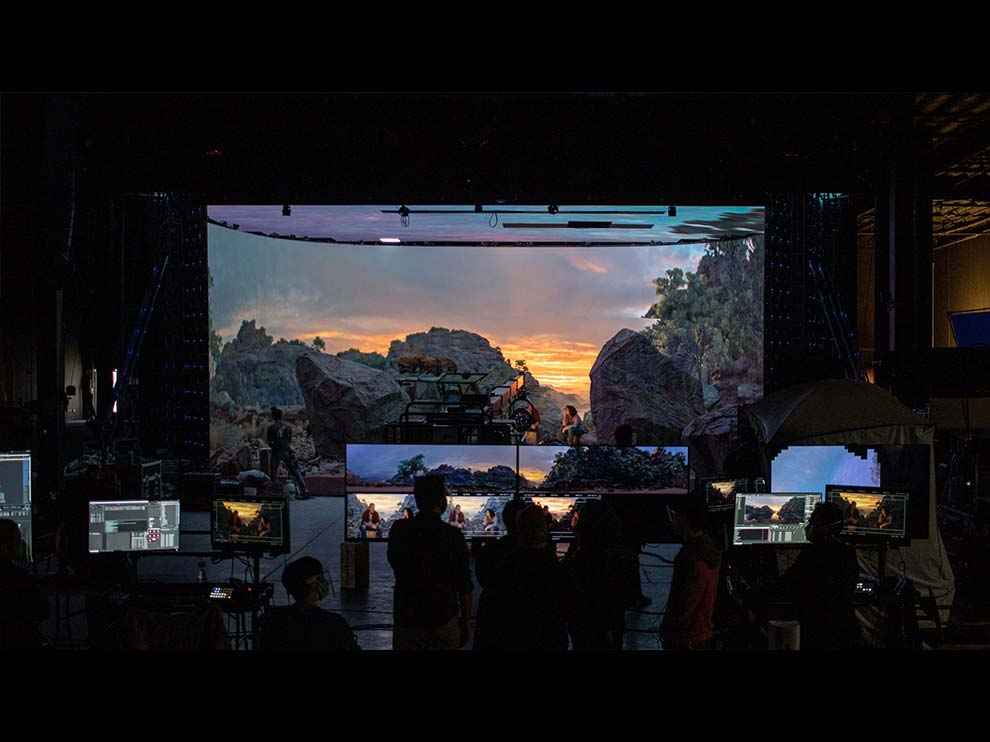Epic Games has announced the release of Unreal Engine 4.27, which will supposedly introduce new features for creators across game development, film and television, architecture, automotive and more. For a full list of all the new features and improvements coming to Unreal Engine 4.27, head on over to the release notes here. Read on for highlights, which include major updates to in-camera visual effects toolset for virtual production, enhancements to GPU Lightmass for significantly faster light baking, integration of the Oodle Compression Suite and Bink Video codecs for free use in Unreal Engine, production-ready Pixel Streaming, production-ready OpenXR support, Datasmith upgrades, and much more.
Unreal Engine 4.27 – Improved in-camera VFX workflowsThe new release of Unreal Engine comes with improvements to the efficiency, quality and ease of use of the in-camera VFX toolset, which will supposedly make it faster and easier than it has ever been before. Epic collaborated with filmmakers' collective Bullitt to create these tools, and have created a test piece that you can check out here. This sample project is available for the community to download for free here.

Unreal Engine 4.27's 3D Config Editor will allow users to easily design their nDisplay setups for LED volumes or other multi-display rendering applications. There will also be multi-GPU support to maximise resolution on wide shots. The GPU is dedicated to in-camera pixels and allows for shooting with multiple cameras, each with its own uniquely tracked frustum. Unreal Engine 4.27 also addes support for OpenColorIO to nDisplay.
Level Snapshots have also been updated, allowing users to easily save the state of a scene and restore any elements later, making it easier to return to previous steps.
Unreal Engine 4.27 – Faster light bakingWith Unreal Engine 4.27 come a plethora of enhancements to GPU Lightmass, with features that improve stability. The system will use the GPU rather than the CPU to reder pre-computed lightmaps, making use of DirectX 12's ray tracing capabilities and Microsoft's DXR framework. This significantly reduces the amount of the time it takes to generate lighting data for scenes. This will be especially helpful in scenes that require global illumination, soft shadows, and other complex lighting effects, which are normally pretty heavy on the load when it comes to rendering in real time.

For in-camera VFX workflows, GPU Lightmass enables crews to modify virtual set lighting far more quickly than before, making productions more efficient and ensuring that creative flow is not interrupted.
Unreal Engine 4.27 – Final-pixel imagery made easyThe Path Tracer is a DXR-accelerated, physically accurate progressive rendering mode in that can be enabled without requiring any additional setup. Unreal Engine 4.27 makes a range of improvements to the Path Tracer, making it viable for creating final-pixel imagery comparable to offline renderings. New features include physically correct and compromise-free global illumination, physically correct refractions, feature-complete materials within reflections and refractions, and super-sampled anti-aliasing.

With RAD Game Tools becoming part of the Epic Games family, the Oodle Compression Suite and Bink Video codec are now built into Unreal Engine, putting some of the fastest and most popular compression and encoding tools in the industry into the hands of Unreal Engine developers for free.
Unreal Engine 4.27 – Production-ready Pixel StreamingPixel Streaming is now production-ready and comes with a host of quality improvements. This enables Unreal Engine and applications built on it to run on a high-powered cloud virtual machine, delivering the full-quality experience to end users anywhere on a normal web browser on any device. Unreal Engine 4.27 also adds support for Linux.

With Unreal Engine 4.27, users can export many more elements to USD—including Levels, Sublevels, Landscape, Foliage, and animation sequences—and import materials as MDL nodes. Users can now also edit USD attributes from the USD Stage Editor, including through Multi-User Editing.
Unreal Engine 4.27 – Production-ready support for OpenXRUnreal Engine 4.27 makes it easier than ever to create XR content in Unreal Engine, with production-ready support for the OpenXR framework. The OpenXR plugin enables users to target multiple XR devices with the same API, and also offers support for additional features—including Stereo Layers, Splash Screens, querying Playspace bounds, and motion controller visualization—and for extension plugins from the Marketplace, enabling you to add functionality to OpenXR without relying on engine releases.
Epic has also redesigned the VR and AR templates to offer more built-in features and easier setup.
These are just a few of the highlights for features that will be included with Unreal Engine 4.27. Like we mentioned above, you can head on over to the release notes to check out all the new features.
from Gaming News https://ift.tt/3gedKFa

No comments:
Post a Comment